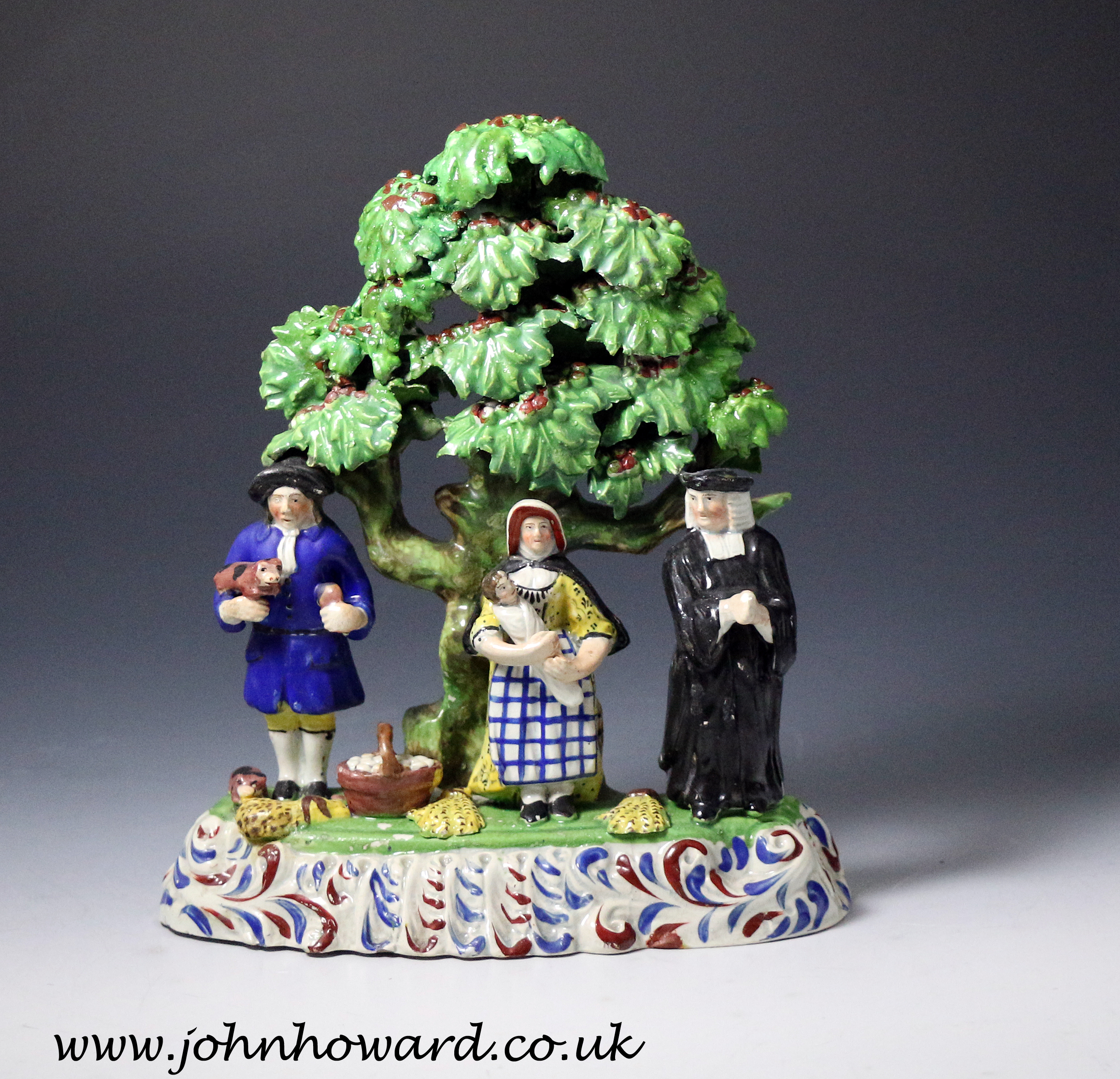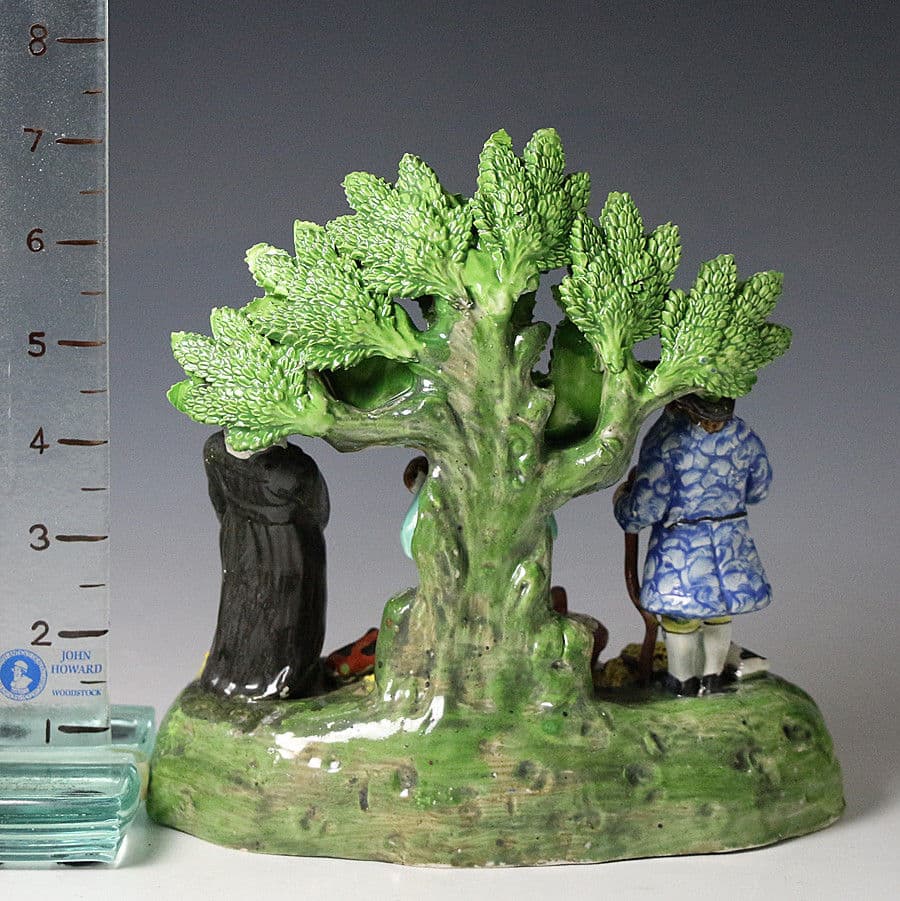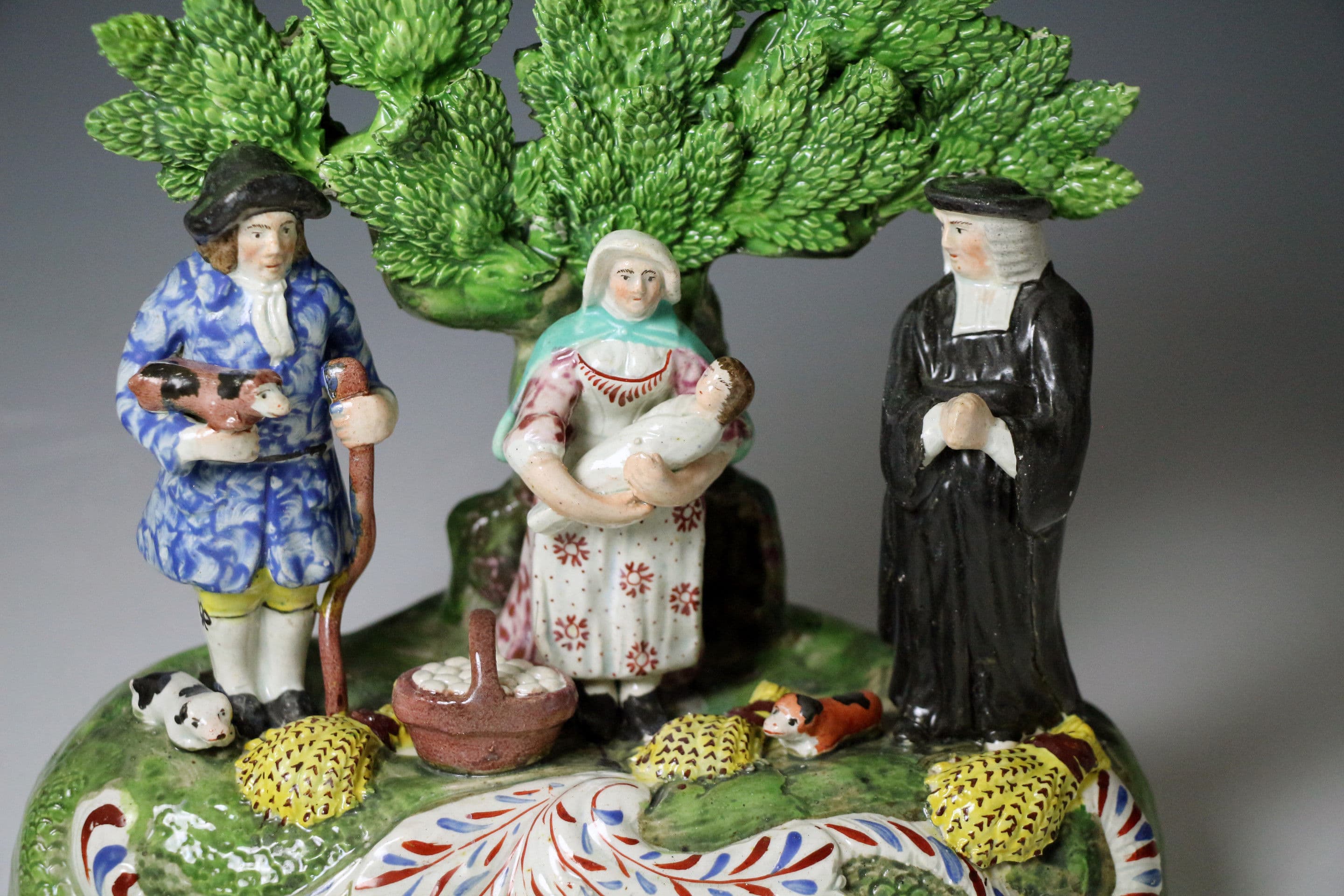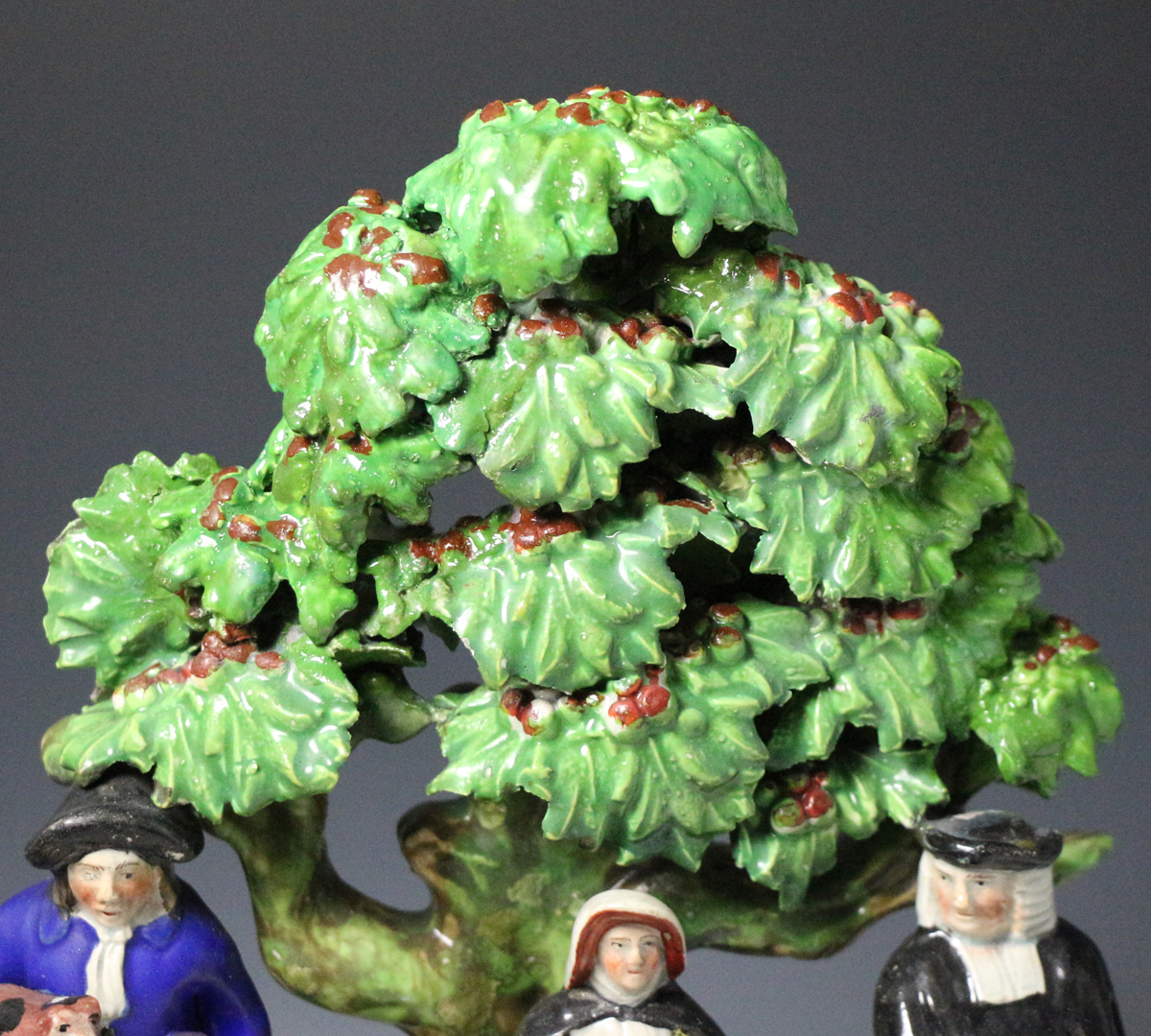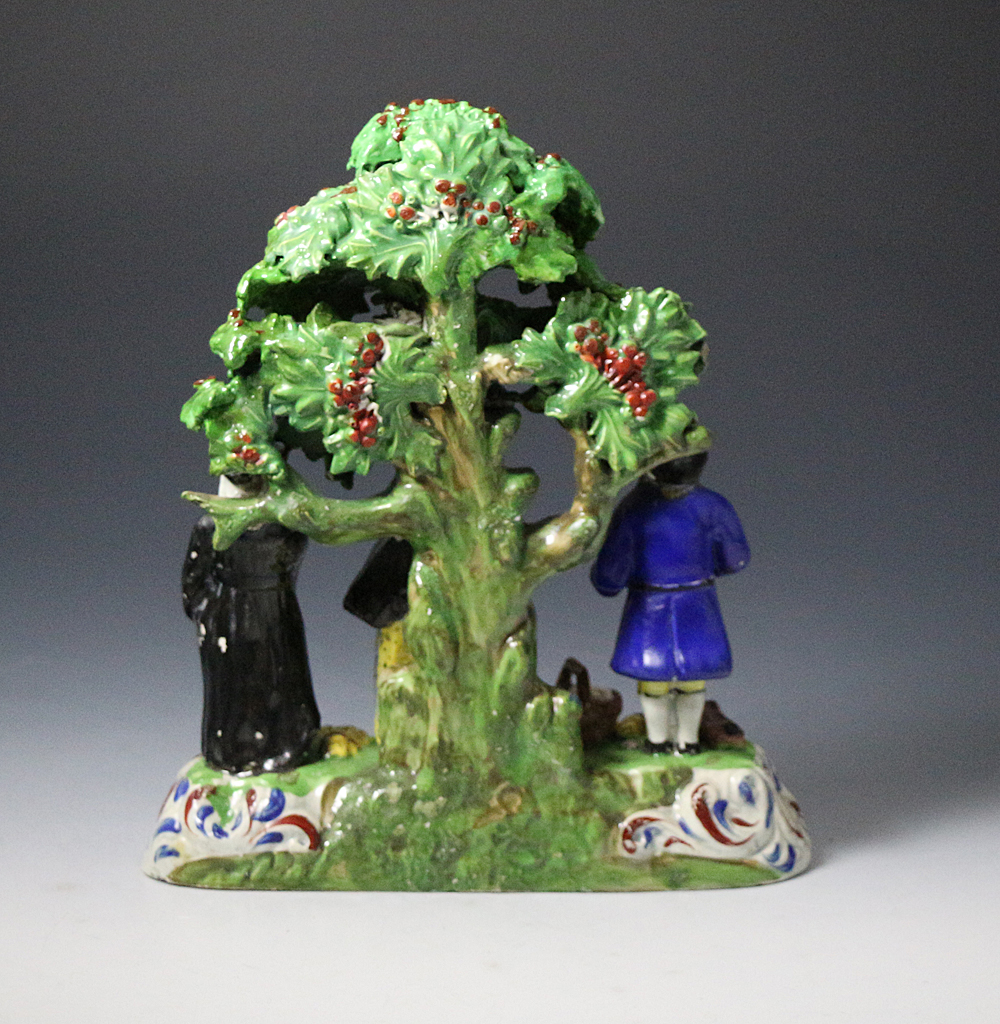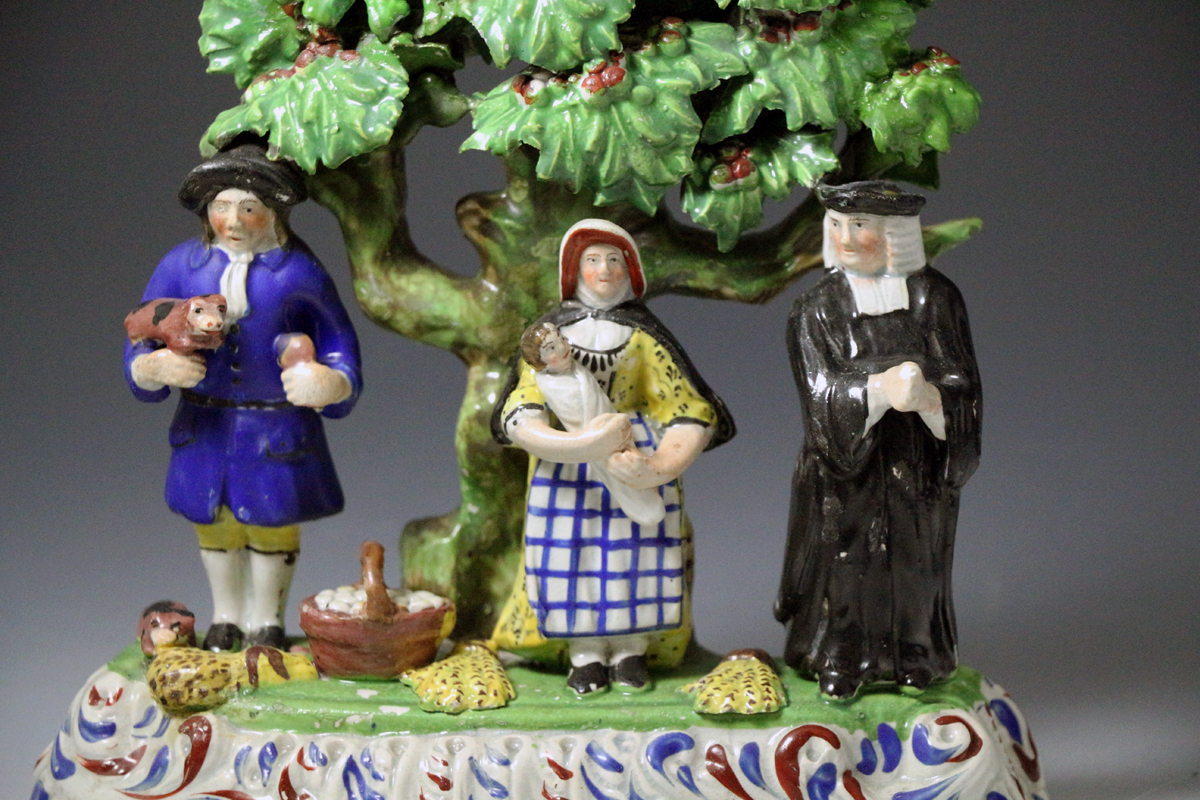Description
Antique English pottery pearlware bocage figure is known as the Tythe Pig Group.
This charming satirical figure has a very decorative holly type bocage with a red, white, and blue rococo feature on the green base. The figure is from the “Patriot” group and one of the best examples of its type.
The figure depicts Farmer Hob ( holding a pig ) and his wife (holding newborn child) meeting the local vicar. The church rented land, and the common practice was to levy a “tythe” as part of the rent. This practice was very tough on the poor, and there was a national feeling to abolish. The group captures the moment when Hob’s wife offers the baby as part of their produce and states, “If you do not take the child, there will be no handing over of the pig,” hence the somewhat startled expression on the clergyman’s face. The practice of imposing a tythe diminished and replaced by other devices such as ground rent.


